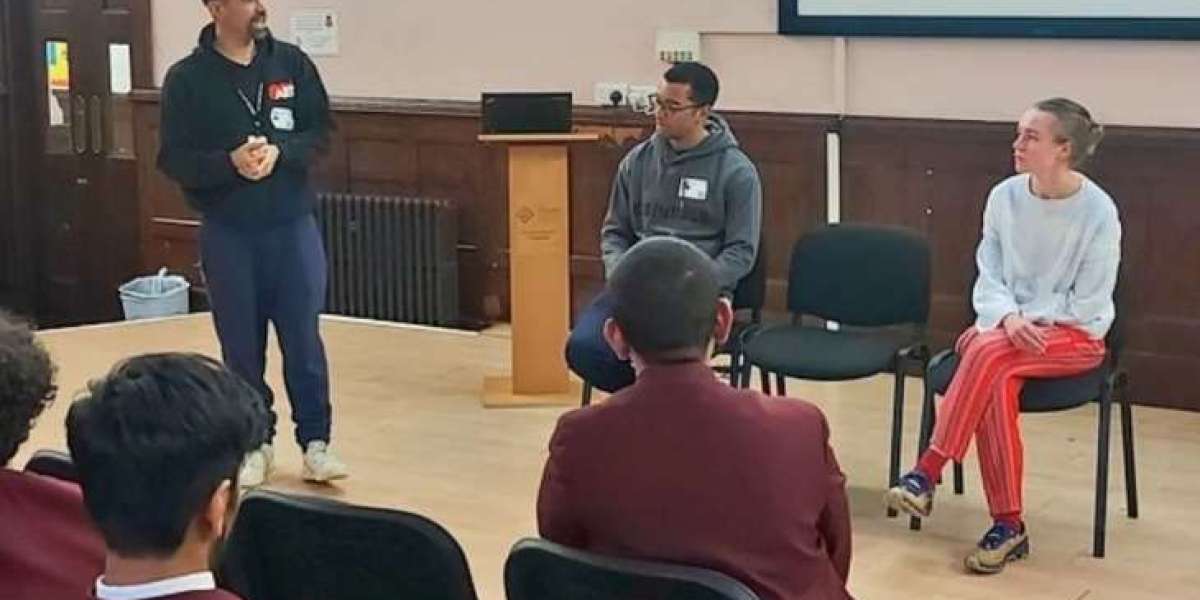Introduction
Education is one of the most powerful tools for shaping individuals and communities. For Muslim families, the choice of schooling carries even greater significance, as it is not only about academic achievement but also about preserving faith, identity, and moral values. Islamic secondary schools have emerged as a solution to this need, offering high-quality education rooted in Islamic principles while meeting the standards of modern academic systems.
This blog explores the importance of Islamic secondary schools, the balance they strike between academics and faith, and their growing role in modern society.
The Growth of Islamic Secondary Schools
Over the past few decades, Islamic secondary schools have expanded significantly in the UK and globally. Parents increasingly seek an environment that reflects their values and supports their children through the formative teenage years. These schools are not limited to religious studies—they provide a holistic curriculum that develops intellectual skills, social responsibility, and spiritual growth.
Academic Excellence as a Priority
Contrary to misconceptions, Islamic secondary schools are deeply committed to academic success. Most follow the UK National Curriculum, preparing students for GCSEs, A-levels, and higher education. Core subjects like mathematics, English, science, and technology are taught alongside humanities, arts, and modern languages.
Many Islamic schools achieve outstanding results, competing with and sometimes surpassing mainstream schools in academic performance. Parents choose these schools with the confidence that their children will be equipped for careers in medicine, law, business, technology, and beyond.
Integration of Islamic Values
What makes Islamic secondary schools unique is their dual approach—they combine academic achievement with strong Islamic values. This includes:
- Daily Prayers: Encouraging students to connect with Allah throughout the school day.
- Islamic Studies: Covering Qur’an, Hadith, Fiqh, and Islamic history.
- Moral Lessons: Embedding respect, honesty, justice, and compassion in everyday learning.
- Arabic Language: Helping students better understand Islamic texts.
This integration ensures that students grow not only as scholars but also as individuals who live with integrity and purpose.
Safe and Nurturing Environments
Islamic secondary schools provide safe spaces where Muslim students feel comfortable and respected. From dress codes that reflect modesty to environments free from peer pressure related to drugs, alcohol, or harmful social behaviours, these schools foster positive development.
For many parents, knowing that their children are in a supportive Islamic environment gives peace of mind. Teachers serve not only as educators but also as mentors, guiding students through academic and personal challenges.
Character Building and Leadership
The concept of Tarbiyyah—nurturing moral and spiritual character—is central to Islamic education. Islamic secondary schools place strong emphasis on discipline, manners, and responsibility. Students are encouraged to become leaders within their communities, with opportunities such as:
- Student councils that give them a voice in school governance.
- Community service projects that instill social responsibility.
- Sports and extracurricular activities that build teamwork and resilience.
- Interfaith initiatives that foster understanding and mutual respect.
Catering to Different Needs
Islamic secondary schools come in different forms to cater to families’ preferences. These include:
- Boys-only or Girls-only schools that provide focused learning environments.
- Co-educational schools with structures that balance both genders while respecting Islamic values.
- Schools with boarding facilities for students from outside the local area.
This diversity allows parents to select the environment best suited for their children.
Community Engagement
Islamic schools often extend beyond the classroom, serving as hubs for community development. They host events, charity drives, and educational workshops, helping students build a sense of belonging and responsibility. By engaging with mosques, charities, and interfaith groups, students develop an understanding of their wider role in society.
Challenges Facing Islamic Secondary Schools
Despite their successes, Islamic schools also face challenges:
- Funding Limitations: Many operate as independent schools, relying on fees and donations.
- Public Perception: They sometimes face misconceptions about being “exclusive” or “isolated.”
- Balancing Curriculum: Ensuring equal emphasis on both Islamic and secular studies can be demanding.
However, these challenges also present opportunities for growth, advocacy, and showcasing the positive contributions of Islamic education.
Conclusion
Islamic secondary schools play a vital role in shaping confident, knowledgeable, and morally upright individuals. They ensure that students are not only academically prepared for higher education and careers but also spiritually grounded and community-oriented. For Muslim parents seeking an education that nurtures both the heart and mind, Islamic secondary schools offer a pathway to success in both worlds.














